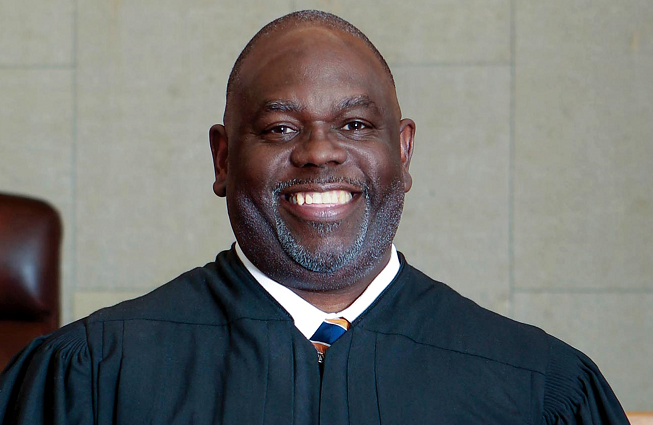An activist judge appointed by President Barack Obama blocked the new heartbeat law in Mississippi on Friday, arguing that it “threatens women’s rights” to an abortion.
U.S. District Judge Carlton Reeves issued a preliminary injunction against the law, The Daily Caller reports. In his ruling Friday, Reeves said the heartbeat law would injure women by taking away their “right” to an abortion after six weeks, before many women know they are pregnant.
The bill “threatens immediate harm to women’s rights, especially considering most women do not seek abortion services until after 6 weeks,” the judge wrote. “This injury outweighs any interest the state might have in banning abortions after the detection of a fetal heartbeat.”
The heartbeat law, which Gov. Phil Bryant signed in March, would ban almost all abortions in the state. An unborn baby’s heartbeat is detectable at about six weeks of pregnancy, though research suggests a baby’s heartbeat may begin as early as 18 days after conception. Abortionists who violate the legislation could face criminal charges. The law allows exceptions for medical emergencies.
The Center for Reproductive Rights quickly filed a lawsuit challenging the law on behalf of the Jackson Women’s Health Organization, the only abortion facility in the state.
Bryant said he was disappointed by the ruling, Fox News 8 reports.
“As Governor I’ve pledged to do all I can to protect life,” he said in a statement Friday. “Time and time again the Legislature and I have done just that. I will encourage the Attorney General to seek immediate review of the preliminary injunction.”
Lt. Gov. Tate Reeves criticized state Attorney General Jim Hood, a Democrat, for not doing more to defend the law. He also urged the state to appeal the ruling.
SUPPORT LIFENEWS! If you want to fight abortion, please help LifeNews.com with a donation!
“Our Heartbeat Bill will save lives and protect a generation of Mississippi children with beating hearts,” the lieutenant governor said in a statement. “It is no surprise that the Obama-appointed lower court Federal Judge granted this injunction, nor is it a surprise that Jim Hood couldn’t find time in his schedule to show up to defend these unborn babies.”
Pro-life advocates hope the U.S. Supreme Court eventually will uphold the law.
Meanwhile, abortion advocacy groups rejoiced at the news.
“The sponsors of Mississippi’s six-week ban, like those of other extreme bans across the country, are shamelessly seeking to overturn Roe v. Wade,” said Nancy Northup, president of the Center for Reproductive Rights. “We will block them at every turn. The Constitution protects a woman’s right to make decisions over her body and her life. The district court’s decision today was a resounding affirmation of this settled law.”
A spokesperson from the ACLU said they also were “thrilled” by the news.
Reeves’ ruling was expected. He is an activist judge who was appointed by pro-abortion President Barack Obama in 2010.
In 2018, Reeves’ ruling against a Mississippi 15-week abortion ban drew national attention for its attacks on pro-lifers’ motives. He lobbed sharp criticisms at pro-life advocates, including false claims that they do not really care about women or babies. Instead, the judge claimed to understand pro-lifer’s real motivation: “controlling women and minorities.”
Abortion advocacy groups are challenging heartbeat laws in Georgia, Kentucky and Ohio as well.
Some pro-lifers have renewed hope that the new conservative-majority U.S. Supreme Court will uphold an abortion ban and overturn Roe v. Wade. Others, however, are hesitant because of concerns about losing the court battle and being forced to reimburse pro-abortion groups for their legal fees.
The Supreme Court took away the states’ ability to protect unborn babies from abortion under Roe v. Wade, and instead allowed abortion on demand through all nine months of pregnancy. Roe made the United States one of only seven countries in the world that allows elective abortions after 20 weeks.
There is more hope that the new conservative-majority U.S. Supreme Court may consider overturning Roe, but it is difficult to say if it would for certain.








